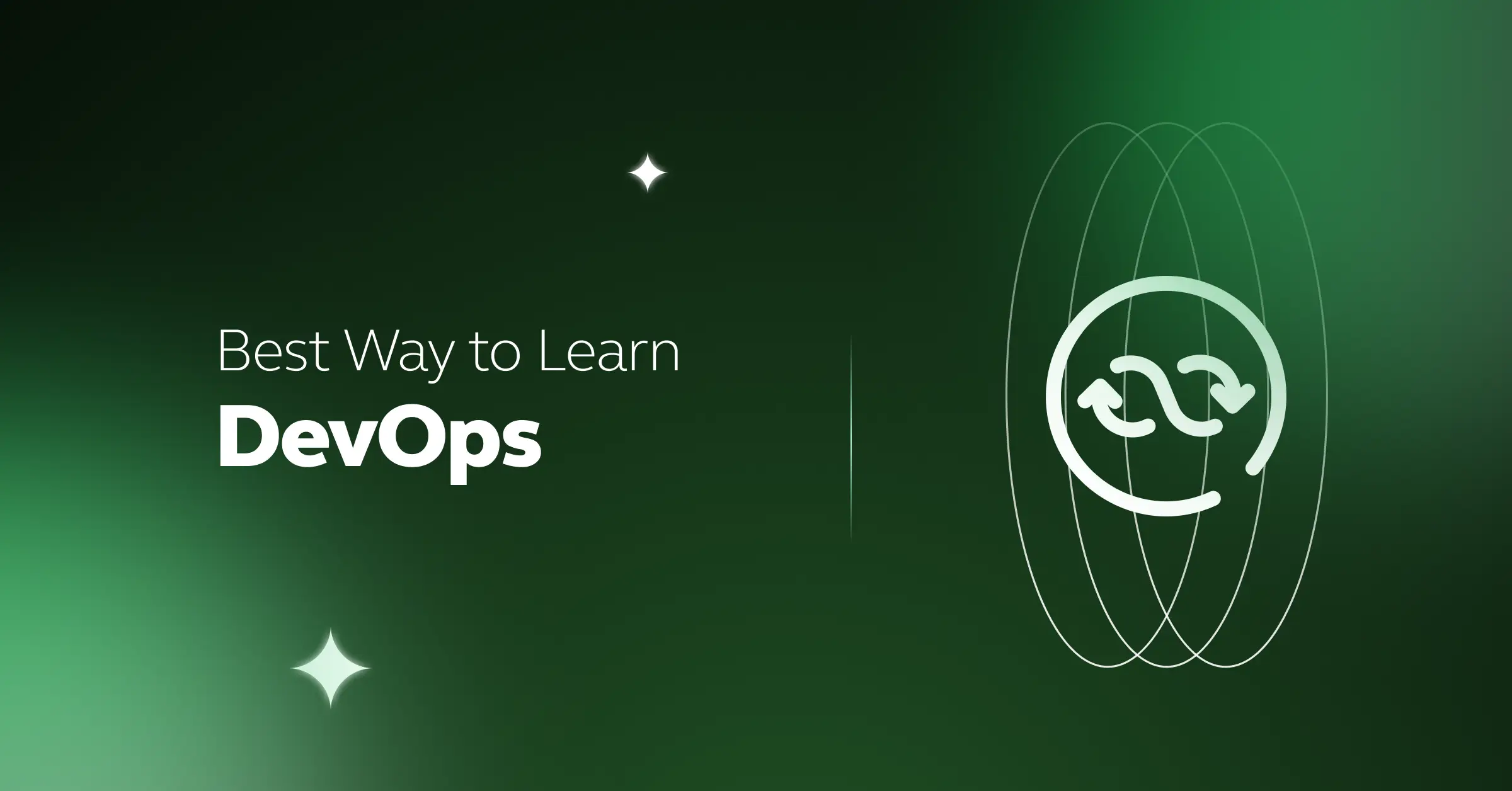
Are you fascinated by the ever-evolving world of DevOps and the seamless integration of development and operations? Do you aspire to become a master of automation, continuous delivery, and cloud technologies? If you’ve ever wondered how long it would take to become a DevOps expert, you’re not alone.
DevOps has revolutionized the way modern businesses deliver software, enabling faster, more reliable deployments and enhancing collaboration among teams. But just how much time and dedication does it require to navigate the complex subject of DevOps successfully? In this article, we explore ways to become a DevOps engineer in months by understanding the key skills, challenges, and factors that impact the learning timeline. Without further ado, let’s get started.
Table of contents
- Becoming a DevOps Engineer in 3 Months: 30-40 hours a week
- Month 1: Foundations
- Month 2: CI/CD and Automation
- Month 3: Advanced Topics and Projects
- Becoming a DevOps Engineer in 6 Months: 15-20 hours a week
- Month 1: Foundations
- Month 2: CI/CD and Automation
- Month 3: Infrastructure as Code (IaC)
- Month 4: Cloud Platforms and Networking
- Month 5: Monitoring and Security
- Month 6: Advanced Topics and Projects
- Becoming a DevOps Engineer in 9 Months: 10-15 hours a week
- Month 1: Foundations
- Month 2-4: CI/CD and Automation
- Month 5-6: Infrastructure as Code (IaC)
- Month 7-8: Cloud Platforms, Networking, and Monitoring
- Month 9: Security, Advanced Topics, and Projects
- Conclusion
- FAQs
- What is DevOps, and why is it important in software development?
- How does DevOps improve collaboration between development and operations teams?
- How can automation benefit the DevOps workflow?
- What are some best practices for learning DevOps within a few months?
Becoming a DevOps Engineer in 3 Months: 30-40 hours a week
Becoming a DevOps engineer in just three months is an ambitious goal, but it’s possible with dedication and consistent effort, especially if you can devote 30-40 hours a week to learning and practicing. Here’s a structured plan to help you achieve your goal:
Month 1: Foundations
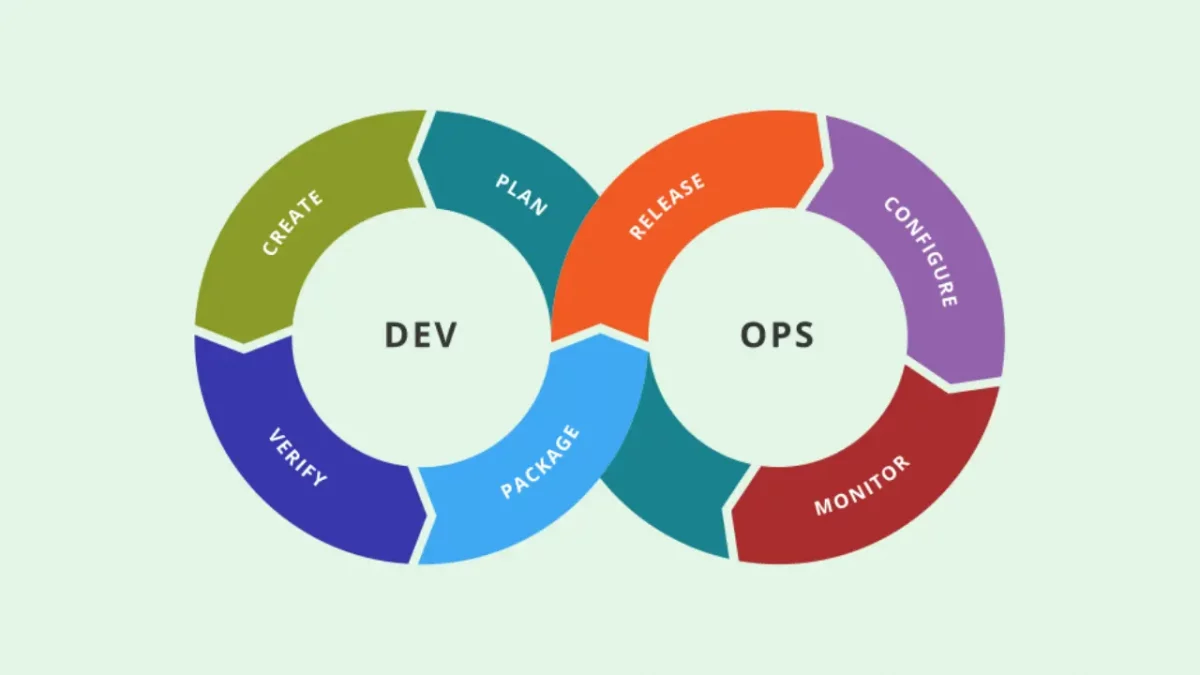
- Understand DevOps Concepts: Start by learning about the core principles, practices, and methodologies of DevOps. Familiarize yourself with Continuous Integration (CI), Continuous Delivery (CD), version control, automation, and infrastructure as code.
- Version Control Systems: Get hands-on experience with popular version control systems like Git. Learn how to create repositories, commit changes, manage branches, and collaborate with others on code.
- Linux Basics: DevOps engineers commonly work on Linux-based systems. Learn the basics of Linux commands, file system navigation, permissions, and shell scripting.
- Infrastructure as Code (IaC): Explore tools like Terraform or Ansible to automate the provisioning and management of infrastructure. Practice creating and managing infrastructure resources in a cloud environment.
Before we move to the next part, you should have a deeper knowledge of DevOps concepts. You can consider enrolling yourself in GUVI’s DevOps Course, which lets you gain practical experience by developing real-world projects and covers technologies including Agile, Scrum, Linux, Git, Bash Scripting, Dockers, Containers, AWS infrastructure, etc.
Additionally, if you would like to explore AWS Infrastructure through a Self-paced course, try GUVI’s AWS Infrastructure certification course.
Month 2: CI/CD and Automation
- Continuous Integration (CI): Dive deeper into CI concepts and set up CI pipelines using popular DevOps tools like Jenkins or GitLab CI/CD. Learn how to build, test, and deploy code changes automatically.
- Containerization: Learn about containerization with Docker. Understand how to create Docker images, manage containers, and build containerized applications.
- Container Orchestration: Familiarize yourself with Kubernetes, the leading container orchestration platform. Learn how to deploy, scale, and manage applications in Kubernetes clusters.
- Monitoring and Logging: Explore monitoring and logging tools like Prometheus, Grafana, and ELK (Elasticsearch, Logstash, Kibana). Understand how to collect, analyze, and visualize system and application metrics.
Month 3: Advanced Topics and Projects
- Cloud Services: Choose a cloud platform like AWS, Azure, or Google Cloud, and gain proficiency in their core services. Learn how to deploy and manage applications in a cloud environment.
- Security in DevOps: Understand security best practices for DevOps, including secure coding, access controls, and compliance. Learn about security tools like OWASP ZAP and SonarQube.
- High Availability and Scalability: Study techniques to design highly available and scalable systems. Learn about load balancing, auto-scaling, and fault tolerance.
- Final Project: Work on a real-world DevOps project that involves building, deploying, and managing a web application using the tools and practices you’ve learned. This will give you hands-on experience and something to showcase to potential employers.
Remember, consistency is key, and you must practice regularly to reinforce your learning. 3 months is a short duration to master DevOps but if you are sincere about it, you can achieve it. Seek out certified online courses, and hands-on labs to supplement your knowledge. Additionally, participate in DevOps communities, forums, and meetups to learn from others and gain insights into industry best practices.
Becoming a DevOps Engineer in 6 Months: 15-20 hours a week
Becoming a DevOps engineer in six months with 15-20 hours per week is challenging, but it’s possible with a focused and disciplined approach. Here’s a roadmap to guide you through the process:
Month 1: Foundations
- DevOps Concepts: You will begin by understanding the core principles and practices of DevOps. DevOps is a cultural and collaborative approach that aims to bridge the gap between development and operations teams. You will learn about the importance of communication, automation, and shared responsibility in the DevOps culture.
- Version Control Systems: Version control is a fundamental aspect of modern software development. You will explore popular version control systems like Git, understanding how they enable teams to track changes to their codebase, collaborate effectively, and manage different versions of the code.
- Linux Basics: DevOps engineers often work with Linux-based systems. You will familiarize yourself with essential Linux commands and concepts, such as file system navigation, permissions, and basic shell scripting. This knowledge will be valuable when interacting with servers and managing infrastructure.
Month 2: CI/CD and Automation
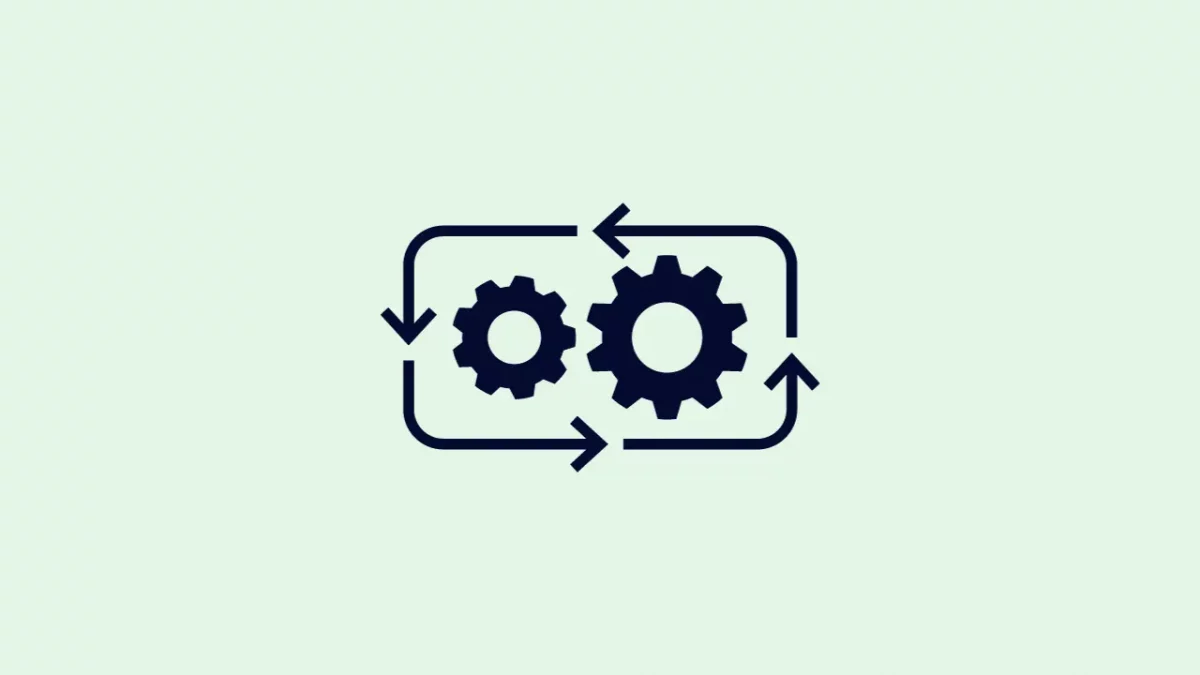
- Continuous Integration (CI): Continuous Integration is a development practice where team members frequently integrate their code changes into a shared repository. Each integration triggers an automated build process, which compiles the code and runs automated tests to detect any potential issues. The primary goal of CI is to catch integration problems early, ensuring that the codebase remains stable and can be reliably built at any time. This process encourages smaller, more frequent code commits and fosters collaboration among team members.
- Continuous Delivery (CD): Continuous Delivery extends CI by automating the release process. Once the code passes all the automated tests in the CI phase, it is automatically prepared and validated for deployment to production or a staging environment. The application is always in a deployable state, and the decision to release it to production lies with the team. CD enables teams to release new features and updates quickly and safely, reducing the time between development and user feedback.
- Automation: Automation plays a pivotal role in CI/CD by eliminating manual, repetitive tasks and reducing human errors. DevOps engineers use various tools and scripts to automate the build, test, and deployment processes. Automation ensures consistency in each release and frees up developers’ time, allowing them to focus on coding and delivering value to users.
Month 3: Infrastructure as Code (IaC)
- Infrastructure as Code (IaC) Concepts: Understand the principles of IaC and the benefits it provides for managing infrastructure.
- Terraform or CloudFormation: Pick a popular IaC tool like Terraform (for multi-cloud support) or AWS CloudFormation (if you are focusing on AWS). Learn how to define and manage infrastructure using code.
Month 4: Cloud Platforms and Networking

- Cloud Services: Choose a cloud platform like AWS, Azure, or Google Cloud, and gain proficiency in their core services. Learn how to deploy and manage applications in a cloud environment.
- Networking Fundamentals: Understand networking concepts like IP addressing, subnets, security groups, load balancers, and VPNs. Learn how to configure networking components in a cloud environment.
Month 5: Monitoring and Security
- Monitoring and Logging: Explore monitoring and logging tools like Prometheus, Grafana, and ELK (Elasticsearch, Logstash, Kibana). Understand how to collect, analyze, and visualize system and application metrics.
- Security in DevOps: Learn about security best practices for DevOps, including secure coding, access controls, and compliance. Learn about security tools like OWASP ZAP and SonarQube.
Month 6: Advanced Topics and Projects
- High Availability and Scalability: Study techniques to design highly available and scalable systems. Learn about load balancing, auto-scaling, and fault tolerance.
- Final Project: Work on a real-world DevOps project that involves building, deploying, and managing a complex web application using the tools and practices you’ve learned. This will give you hands-on experience and something to showcase to potential employers.
Remember, consistent practice and hands-on experience are crucial for becoming a successful DevOps engineer within 6 months. By dedicating 15-20 hours per week and following this structured plan, you can make significant progress toward becoming a DevOps engineer in six months.
Do read about What to learn to become a DevOps engineer?
Becoming a DevOps Engineer in 9 Months: 10-15 hours a week
Becoming a DevOps engineer in nine months with 10-15 hours per week is a realistic goal with consistent effort and dedication. Here’s a roadmap to guide you through the process:
Month 1: Foundations
- DevOps Concepts: Begin by understanding the fundamental principles, practices, and methodologies of DevOps. Explore how DevOps bridges the gap between development and operations, fostering collaboration, automation, and continuous improvement. Learn about the benefits of implementing DevOps in modern software development workflows.
- Version Control Systems: Familiarize yourself with version control systems like Git. Understand the importance of version control in managing code changes and collaboration. Learn how to set up a Git repository, create branches, make commits, and resolve conflicts. Master basic Git commands for day-to-day version control tasks.
- Linux Basics: DevOps engineers frequently work on Linux-based systems. Therefore, it’s crucial to grasp the basics of Linux. Learn about Linux distributions, file system structure, file permissions, and common shell commands. Practice navigating the command line interface and performing essential tasks.
Month 2-4: CI/CD and Automation
- 1. CI/CD Pipeline Setup: Start by setting up your first CI/CD pipeline using popular tools like Jenkins, GitLab CI/CD, or CircleCI. Learn how to integrate your version control system with the CI/CD tool and trigger automated builds whenever code changes are pushed. Understand how to configure the pipeline stages, such as build, test, and deployment.
- 2. Automated Testing: Incorporate automated testing into your CI/CD pipeline. Learn about different types of tests, such as unit tests, integration tests, and end-to-end tests. Write and execute automated test scripts to ensure the quality and stability of your codebase.
- 3. Containerization and Docker: Explore containerization using Docker, a powerful tool for creating, deploying, and running applications in containers. Learn how to containerize your applications, allowing them to run consistently across different environments.
- 4. Docker Compose and Orchestration: Move beyond single-container deployments and learn how to use Docker Compose to define and manage multi-container applications. Get an introduction to container orchestration tools like Kubernetes, which enable you to manage containerized applications at scale.
Month 5-6: Infrastructure as Code (IaC)

- 1. Advanced IaC Concepts: Deepen your understanding of IaC by exploring advanced concepts and best practices. Learn about modularization, where you break down your infrastructure code into reusable components. Understand how to create parameterized templates that allow you to customize deployments for different environments.
- 2. Terraform or CloudFormation in Depth: Choose a popular IaC tool like Terraform (for multi-cloud support) or AWS CloudFormation (if you are focusing on AWS) and dive deeper into its features. Learn about the various resource types and configuration options available in the chosen tool.
- 3. Managing Secrets and Credentials: Explore strategies for managing sensitive information like passwords, API keys, and other credentials securely. Learn about tools like HashiCorp Vault or AWS Secrets Manager to store and retrieve secrets in a safe and auditable manner.
- 4. IaC and CI/CD Integration: Integrate your IaC code with your existing CI/CD pipelines. Learn how to automatically provision and configure infrastructure resources as part of your deployment process, ensuring that infrastructure changes are version-controlled and tested.
Month 7-8: Cloud Platforms, Networking, and Monitoring
- Cloud Services: Choose a cloud platform like AWS, Azure, or Google Cloud, and gain proficiency in their core services. Learn how to deploy and manage applications in a cloud environment.
- Networking Fundamentals: Understand networking concepts like IP addressing, subnets, security groups, load balancers, and VPNs. Learn how to configure networking components in a cloud environment.
- Monitoring and Logging: Explore monitoring and logging tools like Prometheus, Grafana, and ELK (Elasticsearch, Logstash, Kibana). Understand how to collect, analyze, and visualize system and application metrics.
Month 9: Security, Advanced Topics, and Projects

- Security in DevOps: Learn about security best practices for DevOps, including secure coding, access controls, and compliance. Learn about security tools like OWASP ZAP and SonarQube.
- High Availability and Scalability: Study techniques to design highly available and scalable systems. Learn about load balancing, auto-scaling, and fault tolerance.
- Final Projects: Work on real-world DevOps projects that involve building, deploying, and managing complex web applications using the tools and practices you’ve learned. These projects will give you hands-on experience and something to showcase to potential employers.
Remember, practice and hands-on experience are critical for becoming a successful DevOps engineer. Utilize online tutorials, courses, and hands-on labs to reinforce your learning. Additionally, participate in DevOps communities, forums, and meetups to learn from others and gain insights into industry best practices.
By dedicating 10-15 hours per week and following this structured plan, you can make significant progress toward becoming a DevOps engineer in nine months. However, keep in mind that DevOps is a vast and continuously evolving field, so continuous learning and improvement will be essential throughout your career. Good luck on your journey to becoming a DevOps engineer!
Kickstart your career by enrolling in GUVI’s DevOps Course where you will master technologies including Linux, Git, AWS, etc, and build interesting real-life devops projects.
Alternatively, if you want to explore AWS infrastructure through a Self-paced course, try GUVI’s AWS Infrastructure certification course.
Also read the 7 Best DevOps Online Courses for Beginners in 2023
Conclusion
Becoming a DevOps engineer in just a few months is an ambitious endeavor that requires determination and focused effort. Throughout this learning journey, you’ve acquired a diverse skill set, including proficiency in version control, continuous integration and delivery, containerization, infrastructure as code, cloud platforms, and monitoring practices.
By exploring real-world projects and engaging with the DevOps community, you’ve gained hands-on experience and valuable insights. Keep learning, stay curious, and be ready to adapt to the ever-changing technology landscape, and you’ll be well-equipped to thrive as a DevOps engineer. Happy Automating and Deploying!
FAQs
What is DevOps, and why is it important in software development?
DevOps is a set of practices that combine development (Dev) and operations (Ops) to improve collaboration, speed up software delivery, and enhance product quality. It fosters a culture of continuous integration, continuous delivery, and automation, enabling organizations to deliver software more efficiently and reliably.
How does DevOps improve collaboration between development and operations teams?
DevOps breaks down the traditional silos between development and operations, encouraging cross-functional teams to work together throughout the entire software development lifecycle. This collaboration leads to better communication, faster feedback loops, and more effective problem-solving.
How can automation benefit the DevOps workflow?
Automation reduces manual interventions, minimizes human errors, and accelerates software delivery. It enables consistent and reliable deployments, tests, and monitoring processes, freeing up teams to focus on innovation and higher-value tasks.
What are some best practices for learning DevOps within a few months?
Start with foundational concepts, practice hands-on with tools, and work on real-world projects. Engage with DevOps communities, attend webinars, and follow industry experts for continuous learning.

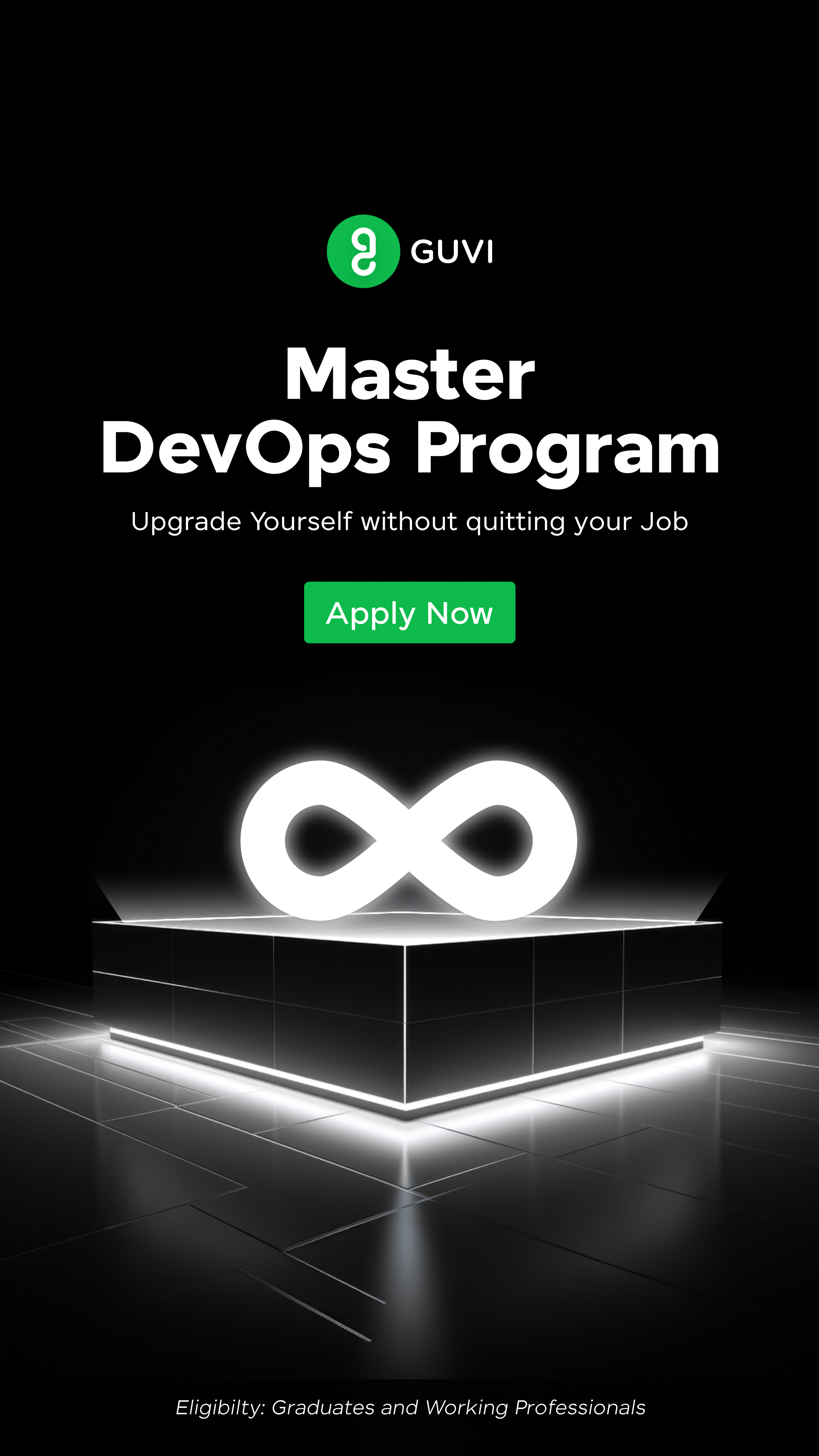


















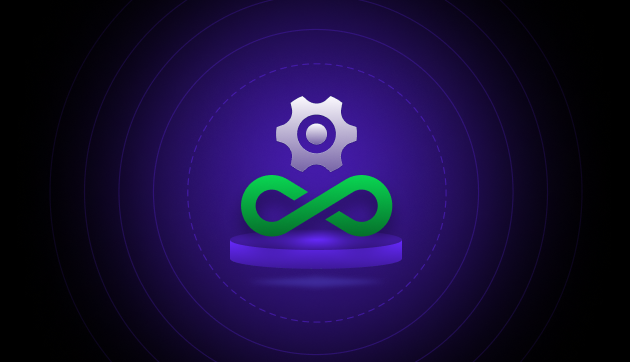
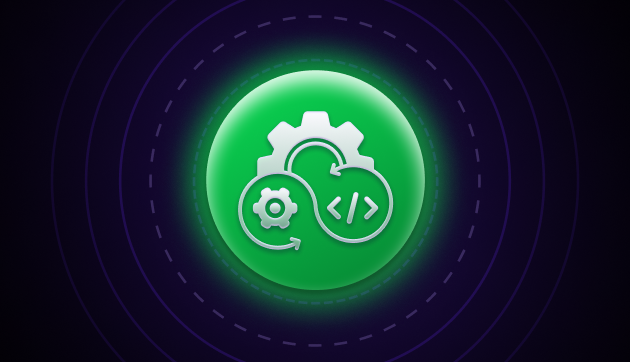
![10 Impressive Docker Project Ideas [With Source Code] 7 Docker Project Ideas](https://www.guvi.in/blog/wp-content/uploads/2024/11/Docker-Project-Ideas.png)
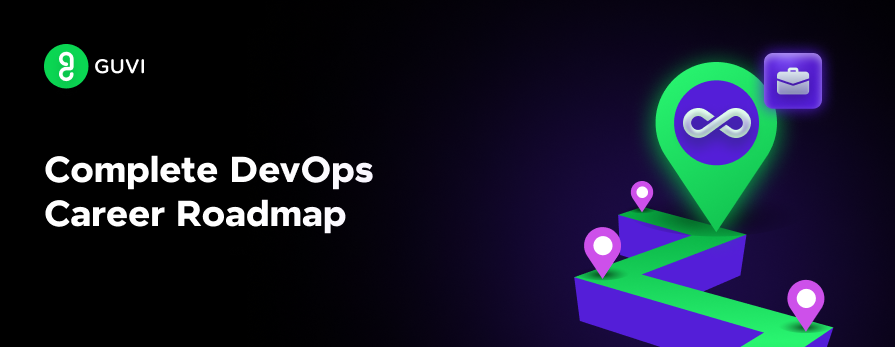



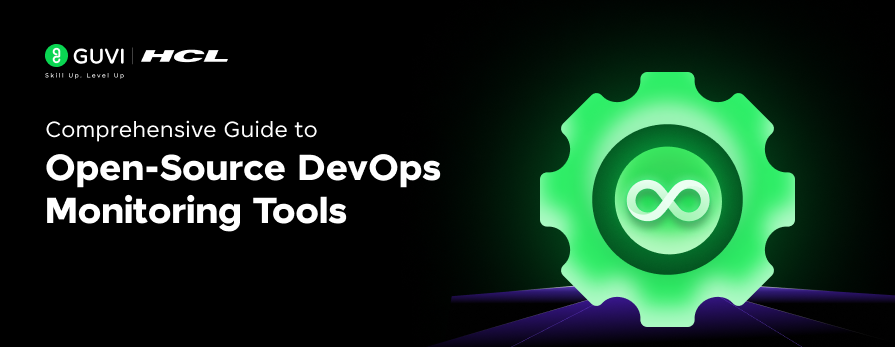
![Top High-Paying Non-Coding Jobs in DevOps [2024] 13 Non-Coding Jobs in DevOps](https://www.guvi.in/blog/wp-content/uploads/2023/11/Top-10-Non-Coding-Jobs-in-DevOps.png)
Did you enjoy this article?